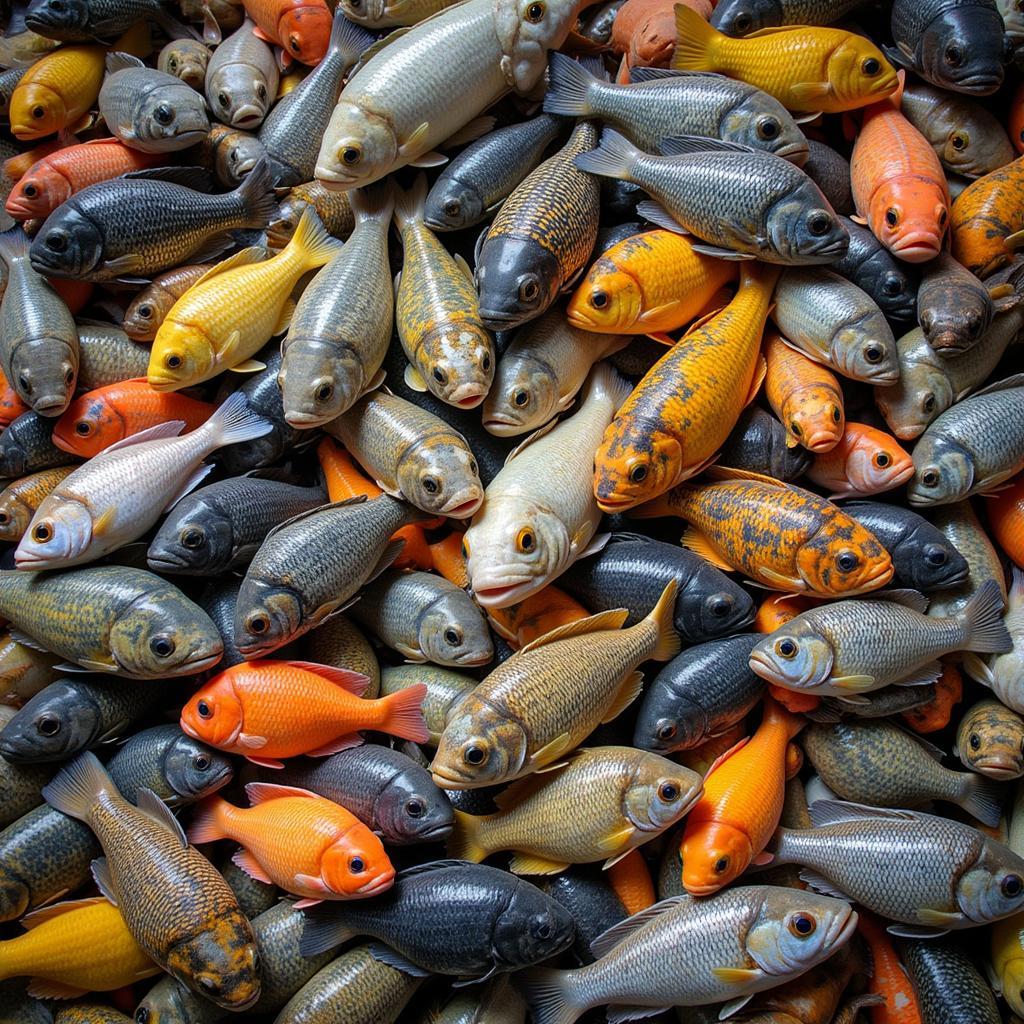About African Weed How It Reduce Salinity
African weed’s potential to reduce salinity is a fascinating area of research with implications for sustainable agriculture across the continent. Salinity, the accumulation of salts in soil, is a major threat to crop productivity, particularly in arid and semi-arid regions. Could certain African weeds hold the key to mitigating this challenge? This article delves into the exciting possibilities and explores how these often-overlooked plants might contribute to more resilient farming practices.
Exploring the Potential of African Weed in Salinity Reduction
Several indigenous African weed species have shown promise in combating soil salinity. These plants often possess unique adaptations that allow them to thrive in harsh environments, including those with high salt concentrations. Understanding these mechanisms could pave the way for developing innovative solutions for salinity-affected lands. Some weeds act as bio-desalinators, absorbing salts from the soil and storing them in their tissues, effectively removing them from the root zone of crops. Others improve soil structure, enhancing drainage and reducing waterlogging, which can exacerbate salinity issues.
Research is ongoing to identify and characterize the specific mechanisms by which these weeds reduce salinity. One promising area of investigation involves exploring the role of root exudates, chemical compounds released by plant roots, in altering soil chemistry and reducing salt toxicity. Another focus is on the potential of using these weeds as green manure or cover crops, incorporating them into the soil to improve its overall health and salinity tolerance.
Identifying Key African Weed Species for Salinity Management
Several African weed species have demonstrated remarkable tolerance to saline conditions. Sesbania sesban, a fast-growing legume, has been shown to effectively reduce soil salinity while also improving soil fertility through nitrogen fixation. Another example is Portulaca oleracea, commonly known as purslane, which exhibits high salt tolerance and can be used as a cover crop to protect soil from erosion and improve water infiltration in saline areas.
Identifying and characterizing these salt-tolerant weeds is crucial for developing effective strategies for salinity management. Researchers are exploring the genetic basis of salt tolerance in these species, with the aim of potentially transferring these traits to crops through breeding or genetic engineering.
How African Weed Impacts Soil Health in Saline Environments
Beyond their direct impact on salinity, these weeds can also improve overall soil health. They contribute organic matter to the soil, enhancing its structure, water-holding capacity, and nutrient content. This improved soil health can further support crop growth and resilience in saline environments.
Dr. Amani Jabali, a leading soil scientist at the University of Dar es Salaam, notes, “These indigenous weeds offer a sustainable and cost-effective solution to salinity management. They represent a valuable resource that has been largely overlooked in conventional agriculture.”
Furthermore, using these weeds can reduce the need for chemical fertilizers and soil amendments, which can be both environmentally damaging and financially burdensome for farmers.
Conclusion: Harnessing the Power of African Weed for Sustainable Agriculture
African weed’s potential to reduce salinity offers a promising pathway towards more sustainable and resilient agriculture in the face of climate change and increasing land degradation. By further investigating the mechanisms and applications of these remarkable plants, we can unlock their full potential for improving soil health and food security across the continent. Further research and development in this area are essential for harnessing the power of African weed for the benefit of both the environment and local communities.
FAQ
- What types of African weeds are being studied for salinity reduction?
- How do these weeds reduce salinity in the soil?
- Are there any drawbacks to using weeds for salinity management?
- Can these weeds be used in combination with other salinity mitigation strategies?
- What are the long-term implications of using African weeds for sustainable agriculture?
- How can farmers access and utilize these weeds for their own farms?
- Where can I find more information about research on African weeds and salinity reduction?
Need support? Contact us 24/7: Phone: +255768904061, Email: kaka.mag@gmail.com, Address: Mbarali DC Mawindi, Kangaga, Tanzania.
We also recommend checking out other related articles on our website. For example, learn more about the different types of African soils and their properties, or explore the impact of climate change on African agriculture. You might also be interested in reading about the importance of biodiversity in maintaining healthy ecosystems.


